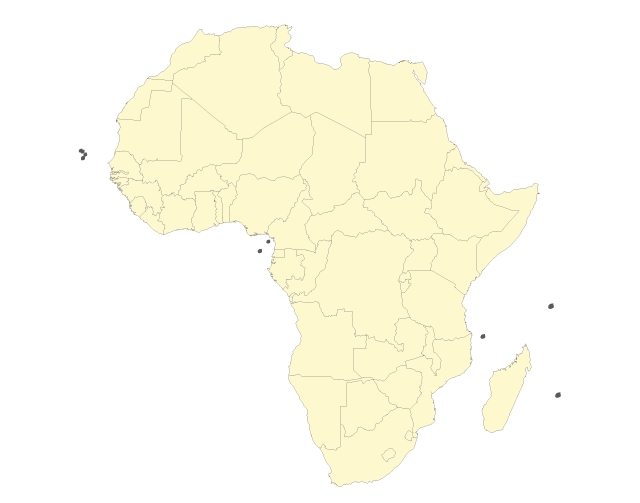WHO and the African Union Commission are working to establish the African Centre for Disease Control and Prevention in 2015
 Brazzaville, 11 May 2015 – Taking into account the many challenges faced on the African continent and the necessity for an accountability framework for health security, the African Union Commission (AUC), in collaboration with the World Health Organization Regional Office for Africa (WHO/AFRO) and partners is in the process of launching the Centres for Disease Control and Prevention in Africa (African CDC).
Brazzaville, 11 May 2015 – Taking into account the many challenges faced on the African continent and the necessity for an accountability framework for health security, the African Union Commission (AUC), in collaboration with the World Health Organization Regional Office for Africa (WHO/AFRO) and partners is in the process of launching the Centres for Disease Control and Prevention in Africa (African CDC).
The soon to be established African CDC was created from the urgent need to put in place structures to support African countries and contribute in efforts to effectively prevent, predict, detect and respond to emergencies, and build the needed capacity to protect communities across the African continent. This is in line with the International Health Regulations (IHR 2005) as well as the lessons learnt from the ongoing Ebola virus disease epidemic in West Africa.
“Within the International Health Regulations, the African CDC will provide a strong platform for technical coordination, ultimately strengthening public health systems, preparedness, surveillance and interventions across the continent,” said Dr Matshidiso Moeti, WHO Regional Director for Africa.
“Despite recent improvements, the readiness of the African Region to deal with health threats, outbreaks of communicable diseases, and emergencies due to other hazards is profoundly in need of additional investment and strengthening,” added Dr Moeti.
WHO/AFRO has been working with the AUC during the process for establishing the African CDC and shall help in identifying five regional collaborating centres in each of the five AUC geographic regions as well as provide technical assistance and qualified WHO experts on the operationalization of the African CDC. As the lead health authority within the United Nations (UN) system, WHO has been at the centre of supporting Member States on the designation of WHO Collaborating Centres, Centres of Excellence and Regional Reference Laboratories, networking of public health institutions, and scaling up disease surveillance and response for ensuring global health security.
In order to ensure necessary synergies, the African CDC will need to work closely with WHO/AFRO to strengthen the implementation of the existing Integrated Disease Surveillance and Response (IDSR), the IHR 2005 as well as the One Health approach through the prevention of risks and the mitigation of effects of crises that originate at the interface between humans, animals and their various environments.
As per the concept note on the establishment of the African CDC, the African CDC will focus more on Event Based Surveillance (EBS). EBS rapidly captures and organizes information about events that are a potential risk to public health. This information can be rumours and other ad-hoc reports transmitted through formal channels (i.e. established routine reporting systems) and informal channels (i.e. media, health workers and nongovernmental organization reports).
To implement the EBS, the African CDC will benefit from the existing Strategic Health Operations Centre (SHOC) at WHO/AFRO. The AFRO SHOC serves as a central place for coordination of responses to all public health events that occur in the Region. It facilitates communication to the field, provides availability of real time data and information for action, and enhances collaboration with Member States and partners. It is the central location from where AFRO provides the four critical functions in an emergency response: leadership, information, technical expertise, and core services.
Transborder, transnational and intercontinental cooperation remains a high priority for WHO and has become the benchmark for effective control and prevention of communicable diseases. The African CDC will be an integral part in implementing this priority through the Public Health Emergency Preparedness and Response (PHEPR) which helps to prevent, respond, mitigate and recover from disease threats within and across borders.
While taking cognizance of the existing regional centres of excellence and relevant health needs and priorities in Africa, WHO and other partners such as the US CDC, the European Union CDC (ECDC), and the China CDC (China CDC) will provide technical assistance to the African CDC to protect Africans from health, safety and security threats.
____________________________________________
For more information, please contact:
Technical contacts:
Dr Fall Ibrahima-Soce; Tel: +472 413 9695; Email: socef [at] who.int
Dr Yahaya Ali Ahmed; Tel: +472 413 9248; Email: aliahmedy [at] who.int
Dr Ntaganira Innocent; Tel: +472 413 4675; Email: ntaganirai [at] who.int
Media contact:
Dr Cory Couillard; Tel: + 472 413 9995; Email: couillardc [at] who.int


